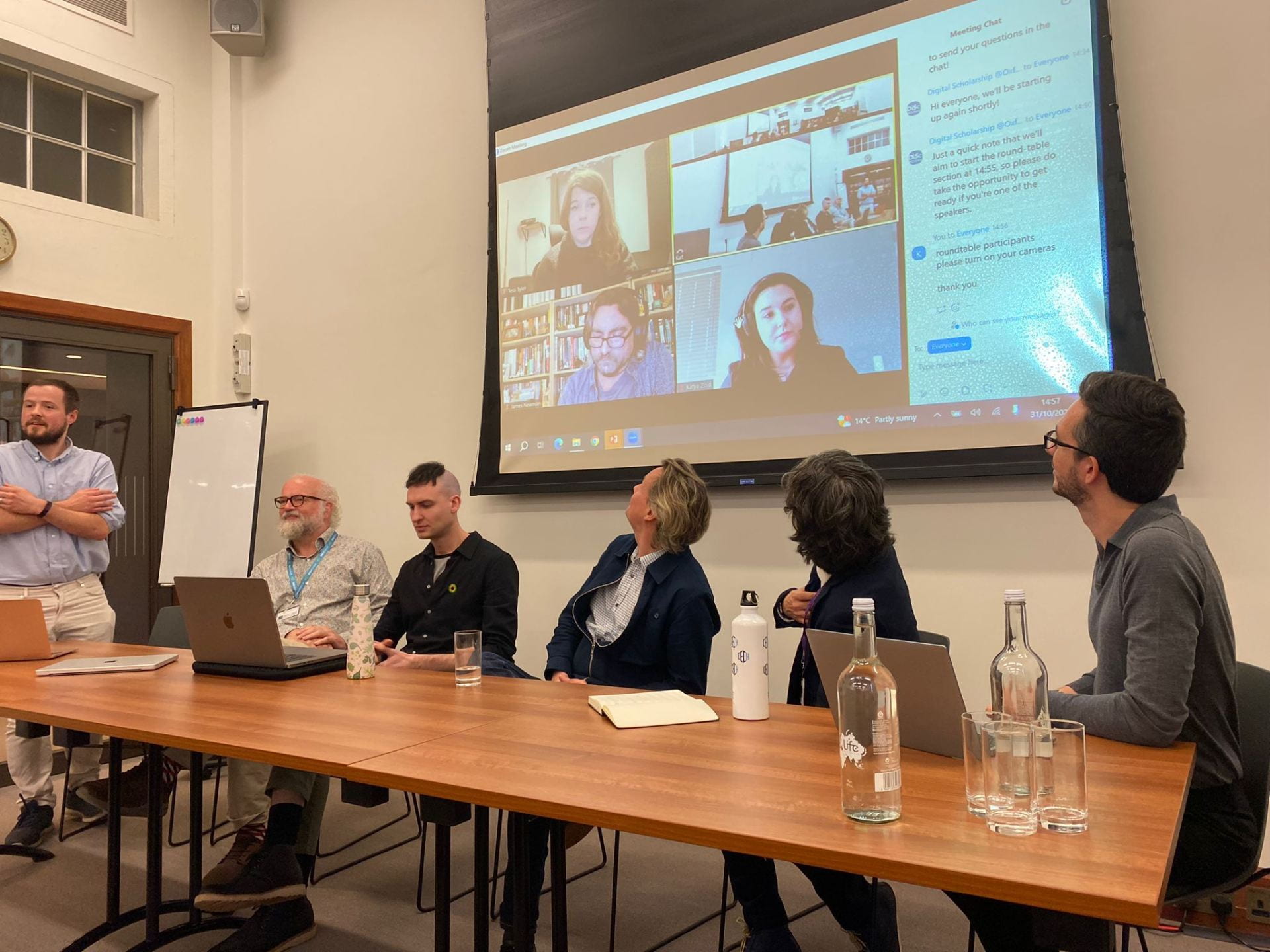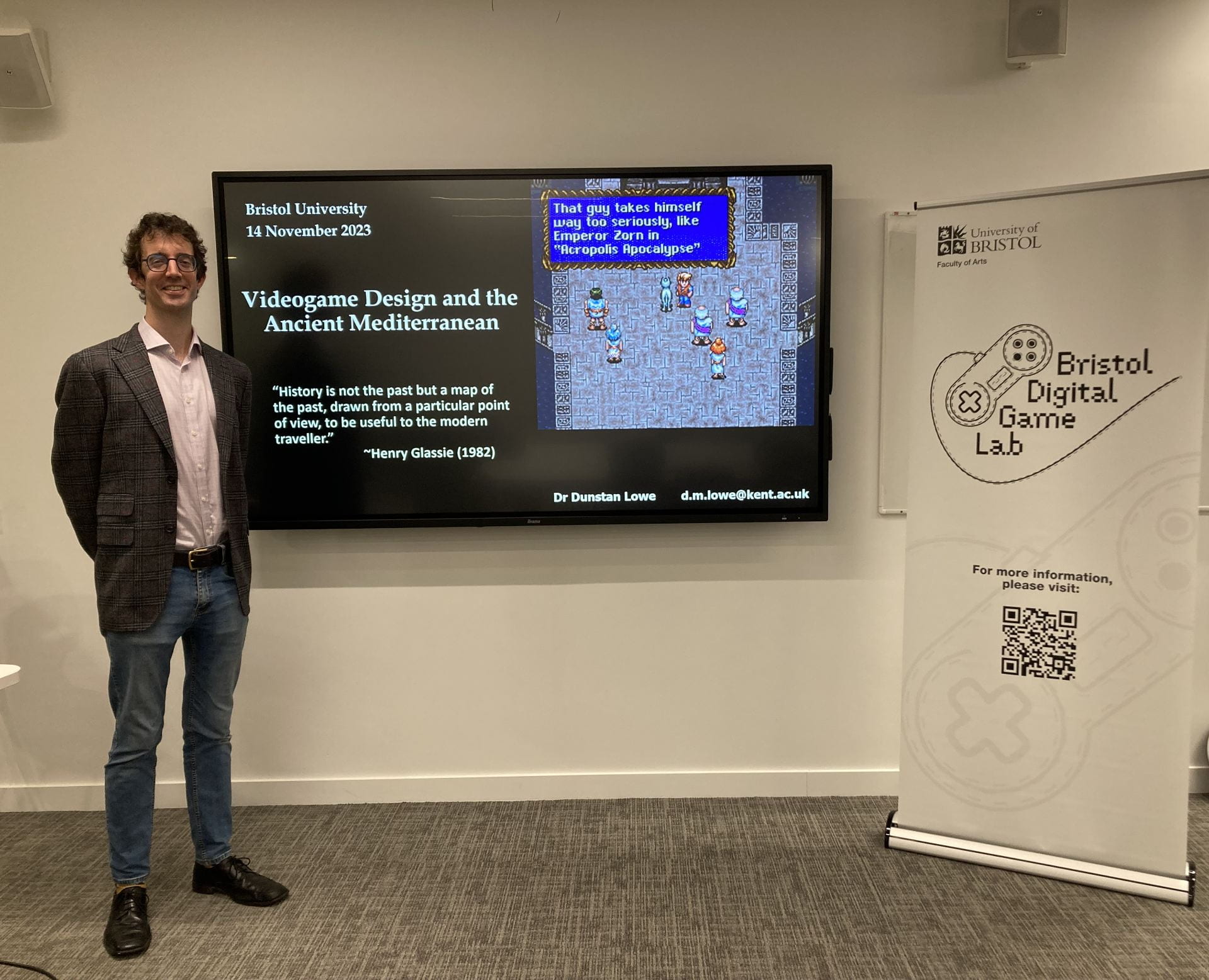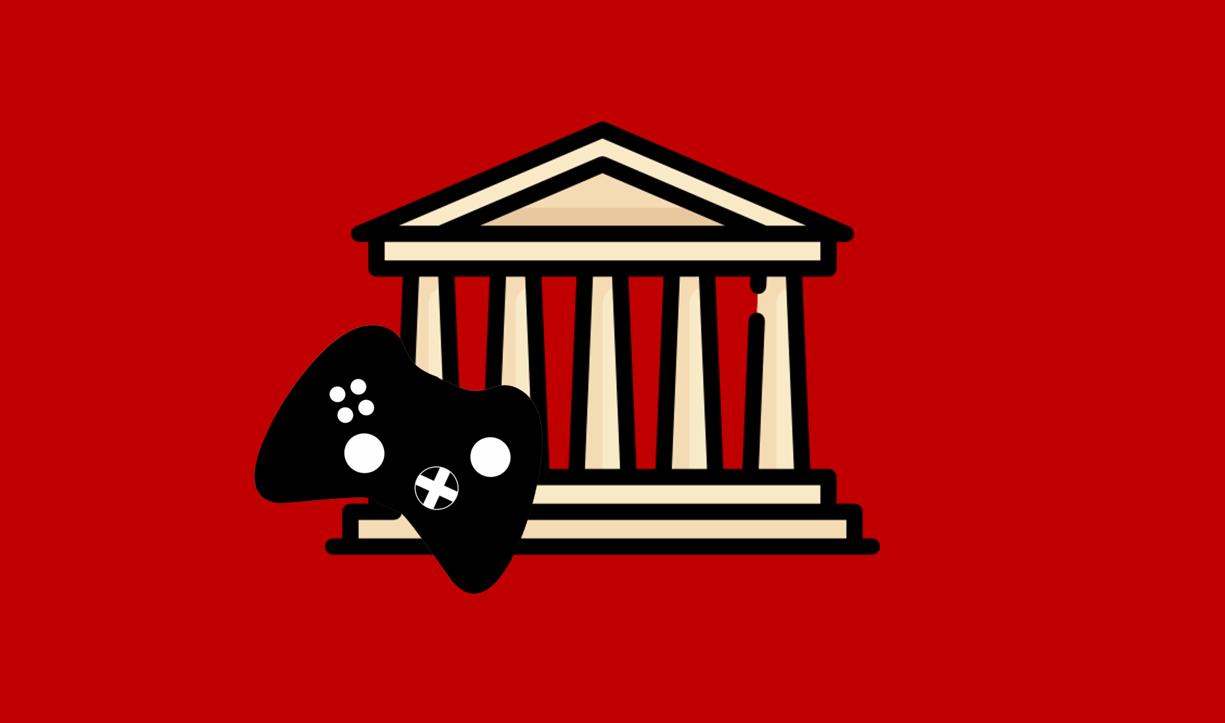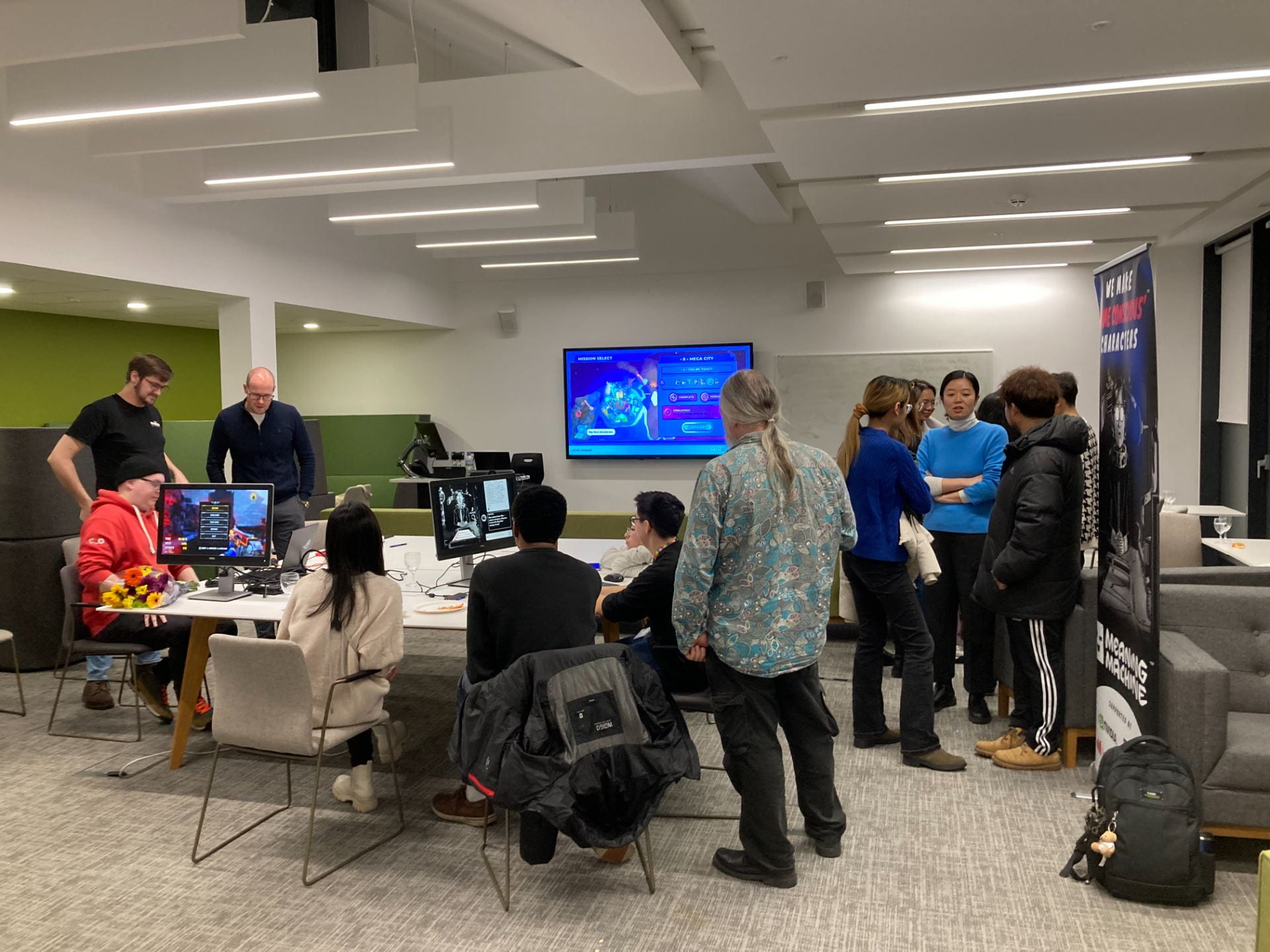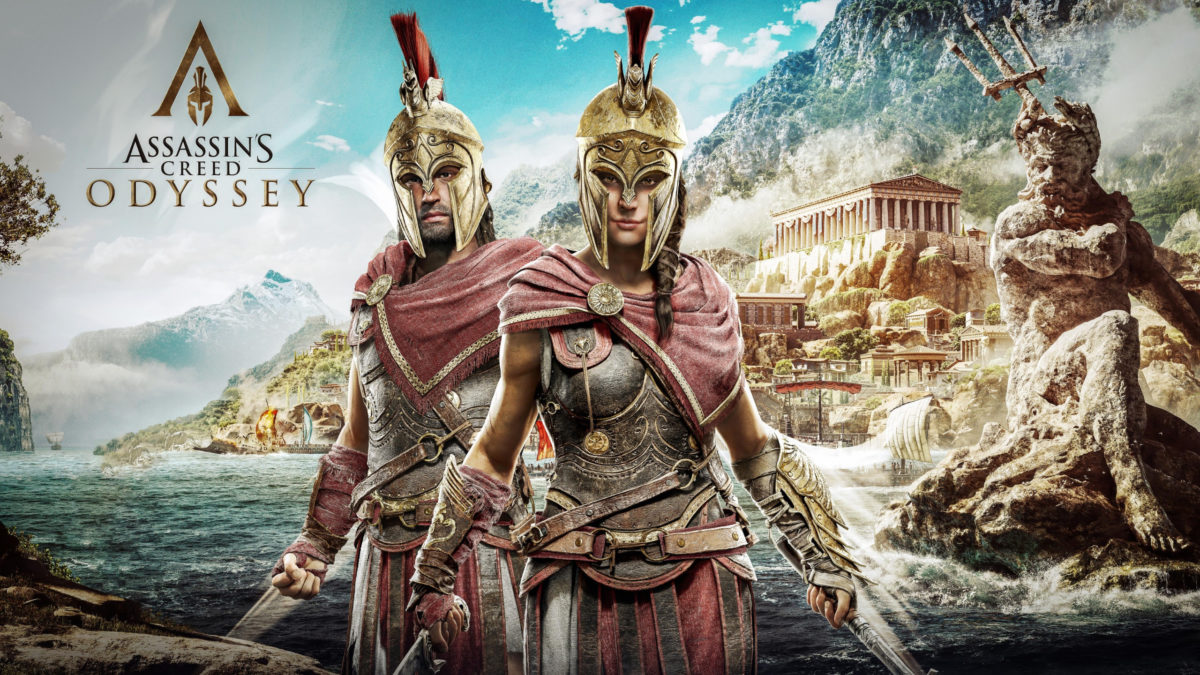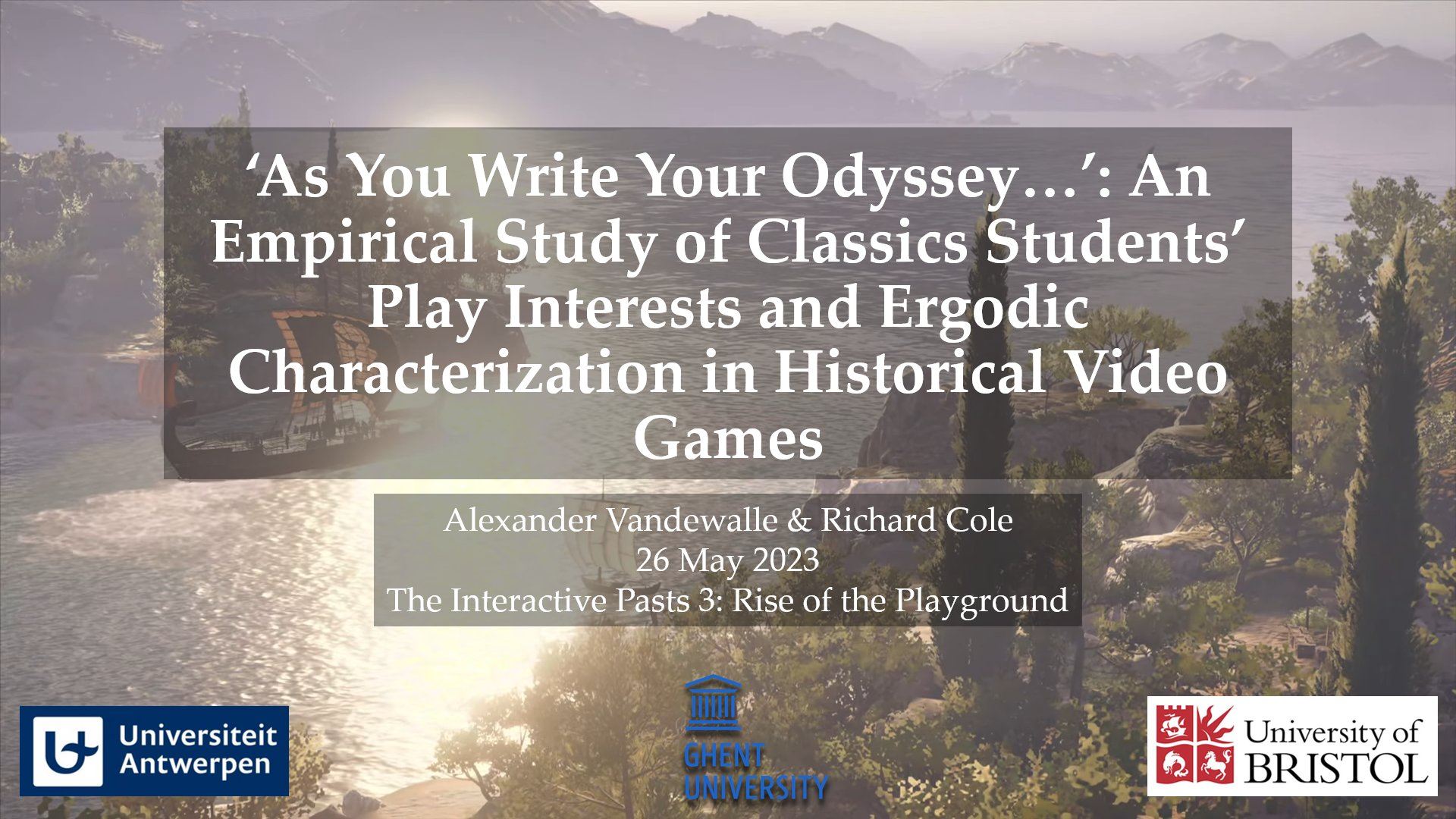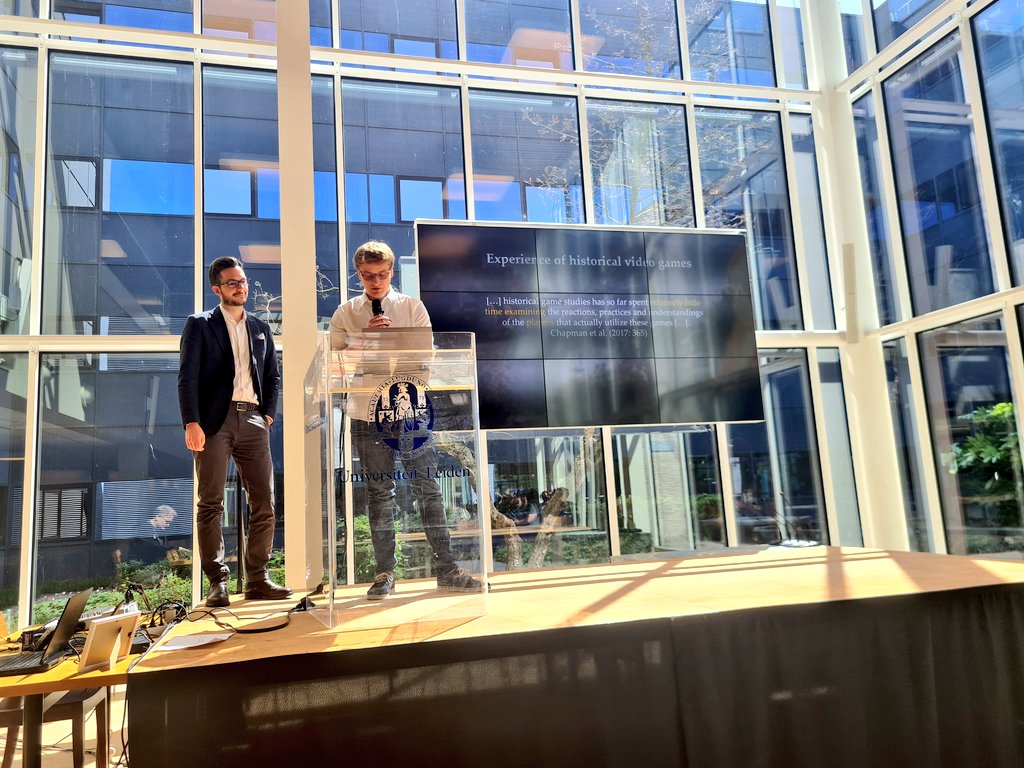January 2024
We’ll be starting the new year with the second event in the Antiquity Games Night series
Antiquity Games Night
The Lab is delighted to be supporting Antiquity Games Night – a new monthly online meetup where scholars, students & designers play antiquity games together, organised by Dr Richard Cole (University of Bristol) and Alexander Vandewalle (University of Antwerp/Ghent University). Think: ‘reading group, but with games’. All you need to do is sign up to the Discord via https://discord.gg/h2XPtJfGut. The second event will be held on Tuesday 30 January 2024. The AGN team will be setting up co-op sessions of Age of Empires II: Definitive Edition – Return of Rome. No experience required. We look forward to seeing you there!

February 2024
Postgraduate Work-in-Progress Workshop
On Friday 23 February, 11:00-17:00, the Bristol Digital Game Lab will be co-hosting a Postgraduate Work-in-Progress Workshop with gaming researchers at UCL. This in person event will showcase the game-based research being undertaken by current postgraduates while also offering a chance for students to share ideas, practice conference papers, and discuss their work in an informal, relaxed setting. All members of the Lab and those interested in game-based research are most welcome to attend and join in the Q&A. Please sign up via Eventbrite. Full programme: Bristol Digital Game Lab Postgraduate Work in Progress Workshop
Antiquity Games Night
Come along to the third Antiquity Games Night on Tuesday 27 February 2024. The AGN team will be setting up co-op sessions of A Total War Saga: Troy. No experience required. We look forward to seeing you there! All you need to do is sign up to the Discord via https://discord.gg/h2XPtJfGut
April 2024
Infecting The World With Games That Make You Think – Industry talk by Ndemic
Come and hear James Vaughan, creator of the mega hit Plague Inc., share the story of the game’s development and look at the impact of Covid and other real world events on both the game and 190 million players. The talk will take place at 17:30 on Wednesday 24 April at the University of Bristol. Book your place now!


May 2024
‘Concept’ game jam
Come along to our second ‘concept’ game jam of 2023/24, co-organised with the Centre for Creative Technologies at the University of Bristol and sponsored by the Economic and Social Research Council (ESRC)!
Theme: Navigating Violent Geographies
Where: Humanities Exhibition Gallery Space (7 Woodland Road, University of Bristol)
When: Monday 13 May, 16:00-20:00
Civilians living in conflict-affected societies navigate insecure and often violent geographies, plagued by division, danger and distrust. Despite these challenges, civilians’ intimate local knowledge helps them develop a mental map of hidden markers and invisible boundaries and allows them to anticipate tension before it escalates. Under duress, they deploy creative strategies to get on with their lives. The aim of this condensed game jam is to think about how the mechanisms of gaming and play can help us understand this crucial, yet often overlooked and undervalued civilian agency at the micro-level.
The event will be introduced by Dr Roddy Brett (University of Bristol), principle investigator on the ESRC-funded ‘Getting on with it: understanding the micro-dynamics of post-accord intergroup relations’ project. For more about the inspiration behind the theme for this game jam, see the project description.
If you would like to attend the jam, please complete our sign up form. The event is open to both University staff, students, and the wider public.
Pizza and drinks will be provided, thanks to the generous sponsorship of the ESRC.
If you have any questions about this event, please contact the organizer, Dr Richard Cole (richard.cole@bristol.ac.uk).
Asses.masses UK Premiere – Mayfest
 We’re sponsoring the asses.masses UK Premiere! asses.masses, by Patrick Blenkarn and Milton Lim, is being put on as part of Mayfest, Sat 18th May – Sun 19th May at the Watershed, Bristol. It is an epic, 7+ hour, custom-made video game about labour, technophobia and sharing the load of revolution designed to be played from beginning to end by a live audience. This is gaming as performance; an immersive, cheeky and highly original work. Brave spectators take turns at the controller to lead the herd through a post-Industrial society, where asses are valued more for their hides than their potential.
We’re sponsoring the asses.masses UK Premiere! asses.masses, by Patrick Blenkarn and Milton Lim, is being put on as part of Mayfest, Sat 18th May – Sun 19th May at the Watershed, Bristol. It is an epic, 7+ hour, custom-made video game about labour, technophobia and sharing the load of revolution designed to be played from beginning to end by a live audience. This is gaming as performance; an immersive, cheeky and highly original work. Brave spectators take turns at the controller to lead the herd through a post-Industrial society, where asses are valued more for their hides than their potential.
Confronting automation driven job loss, nostalgia as a barrier to progress, and the role of technology in adaptation, we are encouraged to find space between the work that defines us and the play that frees us. asses.masses is Animal Farm meets Pokémon meets Final Fantasy: as exciting in form as it is in content. No previous gaming (or donkey) experience required. Book your place now!
We’re also collaborating with the Pervasive Media Studio to put on a Lunchtime Talk on Friday 17 May, 13:00-14:00 ahead of the premier, where you can hear the artists talk about the creation of asses.masses in conversation with members of Lab.
June 2024
Conference: New Directions in Classics, Gaming, and Extended Reality
Booking now live!
Programme and Abstracts
When: 3rd – 4th June 2024, 09:00-19:00 UTC both days
Where: Hybrid – University of Bristol / Online
Organiser: Dr Richard Cole (Lecturer in Digital Classics, University of Bristol)
From video games to virtual reality experiences, the Classical world continues to inspire developers and players alike. What does it mean, though, to explore antiquity in virtual spaces? How are such virtual worlds built, how are they experienced, and what do current technological developments mean for the future of Classics? Scholarship has begun to explore the contours of these questions. There have been several edited volumes (e.g., Thorsen 2012, Rollinger 2020, Draycott and Cook 2022), a couple of monographs (André 2016, Clare 2021), along with chapters and articles published in a variety of books and journals, reflecting the nature of gaming scholarship; namely, that this is a multidisciplinary field drawing on a range of methodologies. Such works have broken important ground, although coverage remains partial. Extended reality (XR) simulations, for example, have received far less attention. This is despite the growing use of AR and VR across the heritage sector (e.g., Yorescape, Lithodomos), the crossovers with gaming (e.g., Assassin’s Creed Nexus), as well as the potential for academic research and education (e.g., the Virtual Reality Oracle).
This conference will move to define future directions for research, building on the current state of the art. The aim is to foster a debate that is less reactive to new releases of games and apps, and instead focused on challenging questions around methodology, impact, and industry practice, while also remaining sensitive to the opportunities that these technologies raise for drawing links between the ancient and modern. This two day hybrid conference, hosted by the Bristol Digital Game Lab, thus takes the idea of extended reality, which typically refers to virtual, augmented, and mixed reality, and considers how – from the inception of video games through to the latest AR and VR applications – the history and culture of the Classical past have been twinned with the digital.
Call for papers: New Directions in Classics, Gaming, and Extended Reality
Sponsors: University of Bristol Faculty of Arts, Institute of Greece, Rome, and the Classical Tradition, Bristol Digital Game Lab, Centre for Creative Technologies.
ArtScope Concept Game Jam
Theme: Challenges facing urban protected sites
Where: Leigh Woods and University of Bristol
When: Friday 28 June, 12:00-19:45
Our third game jam of the year! This jam is co-organised with Natural England and Policy Lab. Come and explore environmental challenges and the policy implications for urban protected sites through the lens of gaming. Bristol will be our case study for the day. We’ll begin at Leigh woods with a tour by an expert from Natural England, and then make our way to the University of Bristol for the jam. Due to the nature of this collaboration, we are particularly keen to encourage students (undergraduates and postgraduates) to attend. You can sign up
via this MS Form, which includes the full programme.
Further events will follow in autumn 2024


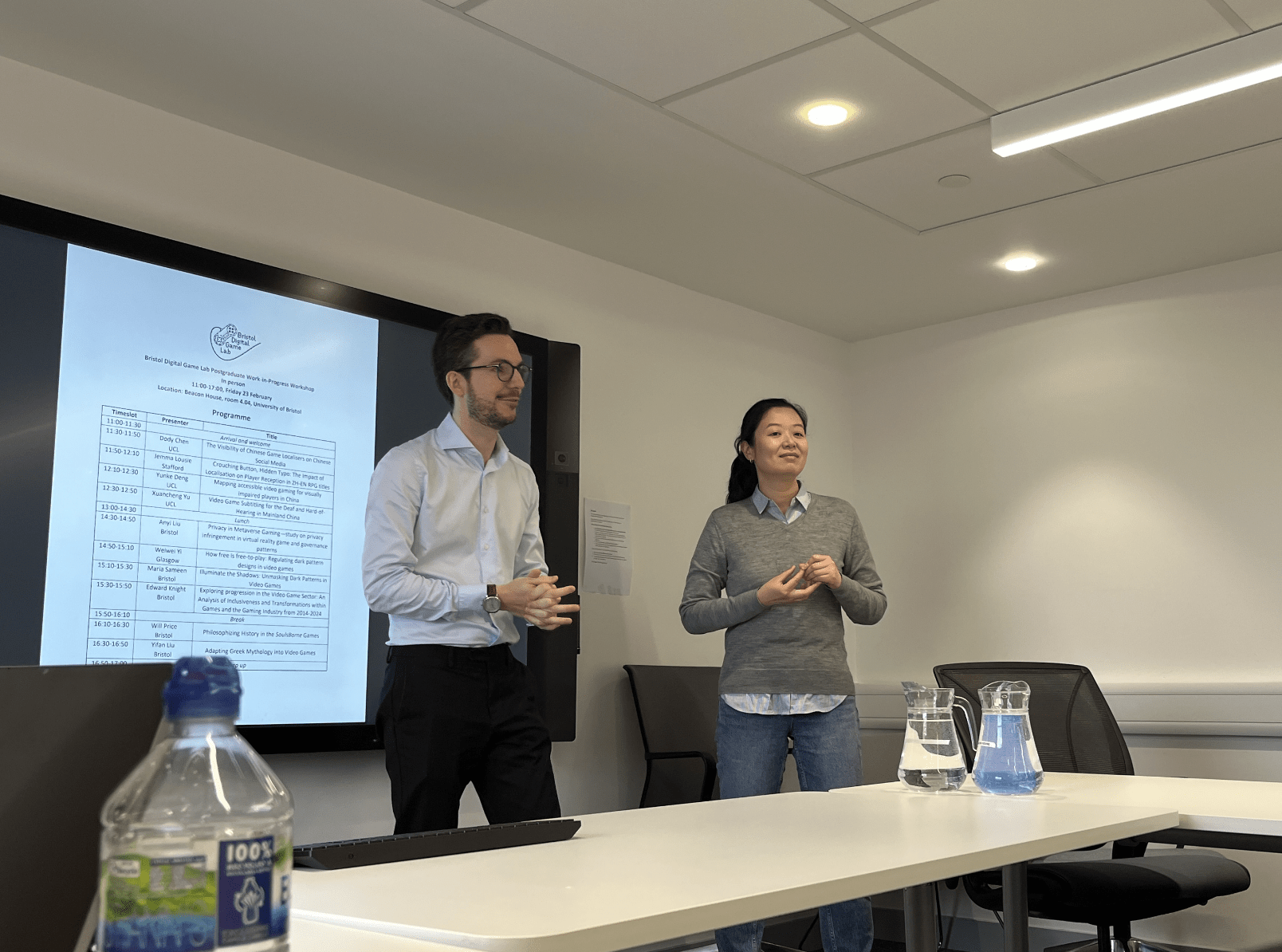
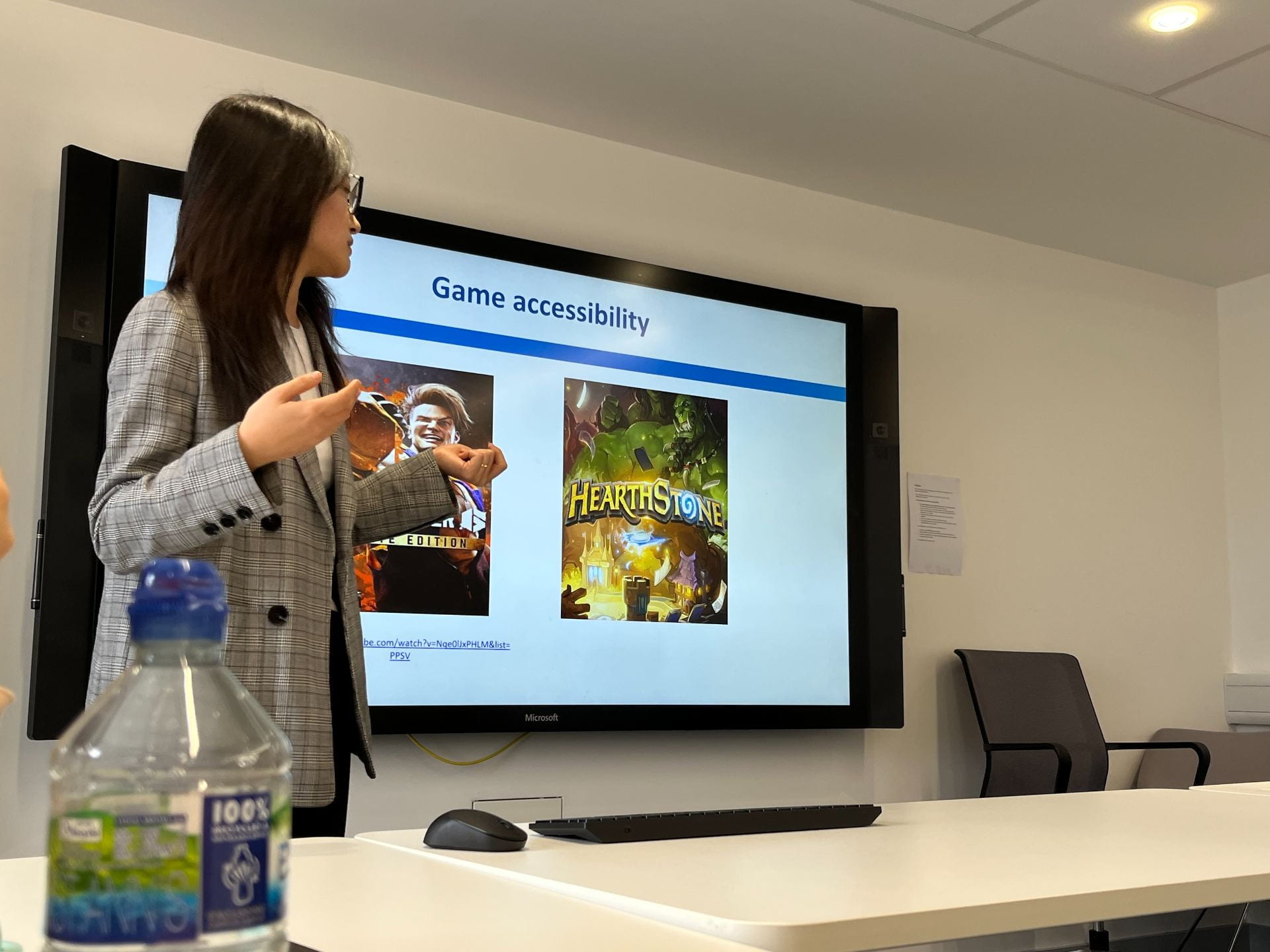
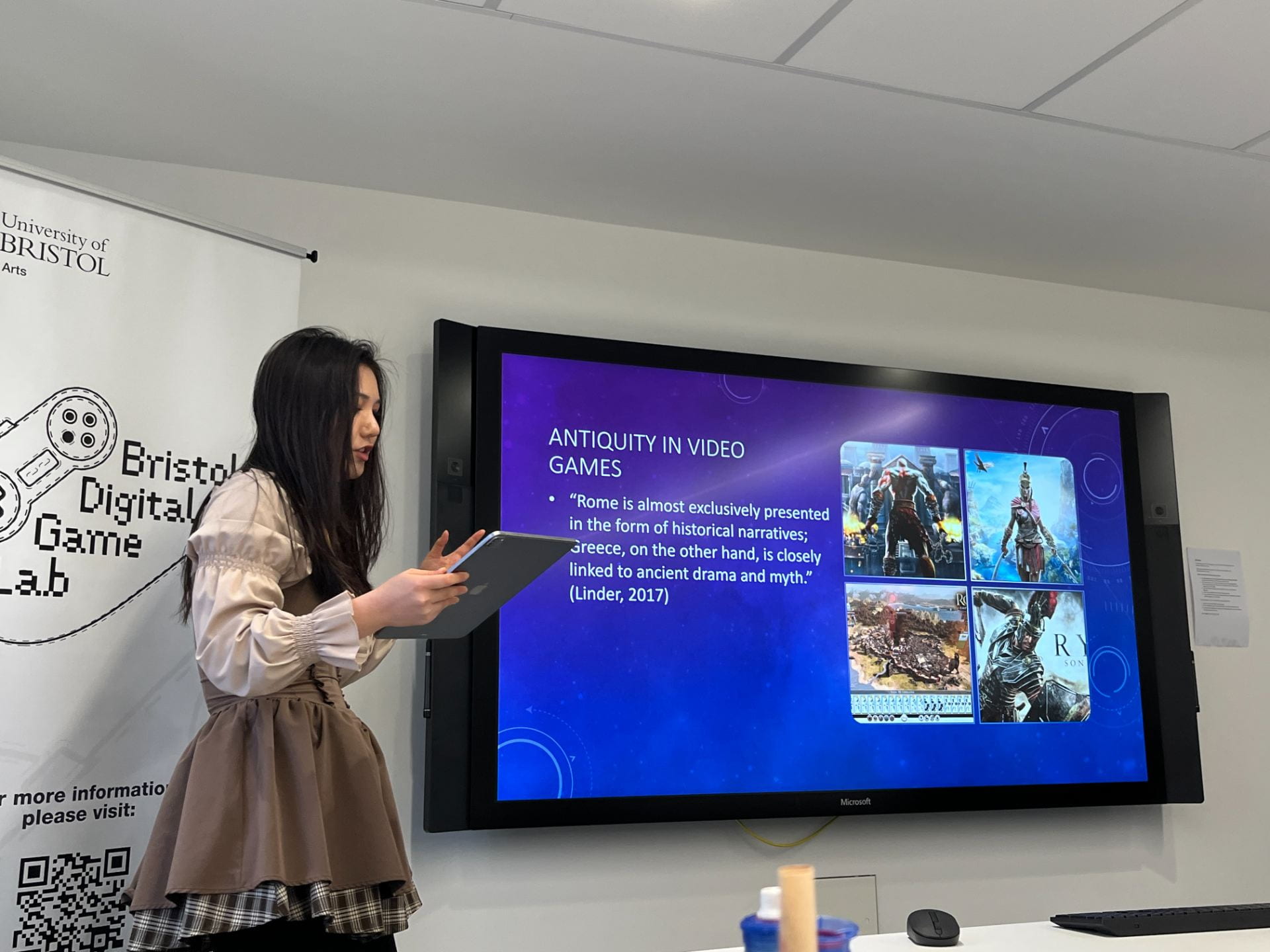
 Renewable energies represented within the Pokémon franchise. Left: Pokémon Brilliant Diamond (2021). Right: Pokémon Scarlet (2022).
Renewable energies represented within the Pokémon franchise. Left: Pokémon Brilliant Diamond (2021). Right: Pokémon Scarlet (2022).




